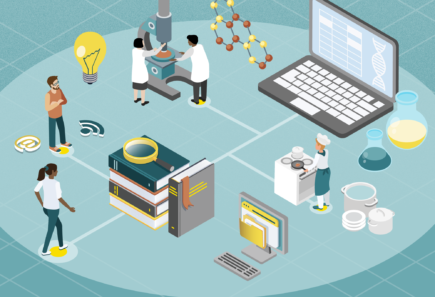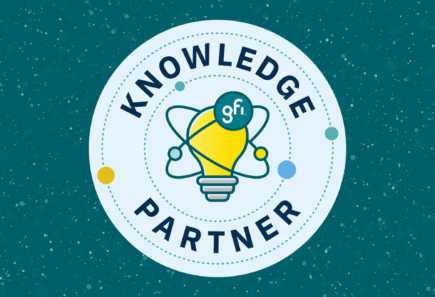
The Science of Alt Protein: The science, technology and art of high protein plant-based cheese

Event speaker:
Dr. Alejandro G. Marangoni, O.C., F.R.S.C.
University of Guelph
Webinar description
Animal proteins and by-products, such as milk and cheese, generate the greatest greenhouse gas emissions in the food sector. This, coupled with the demonstrably worsening climate crisis, means that there needs to be a shift to more sustainable alternatives in the form of plant-based foods. In particular, the plant-based cheese industry is relevant, as the products lack critical functionalities and nutrition compared to their dairy-based counterparts.
Waxy starch, plant-protein isolate, and coconut oil were combined to create a novel high-protein (18% w/w) plant-based cheese. Dr. Marangoni and his team determined that by using native waxy starch, they could enhance its existing viscoelastic properties by modulating gelatinization by adding plant protein and fat. Texture profile analysis indicated that the cheese analogues could reach hardness levels of 15-90N, which allowed samples to be tailored to a broader range of dairy products. They determined that plant proteins and fat can behave as particulate fillers, enhance network strength, and create strategic junction points during starch retrogradation.
The degree of melt and stretch of the high protein plant-based analogues were 2-3 times greater than those observed for commercial plant-based cheeses and significantly more similar to dairy cheese. The rheological melting kinetics saw that the high protein plant-based cheese displayed more viscous properties with increasing temperature. The tan delta (G”/G’) at 80C was used as an indicator for sample meltability where higher values indicate better melt and more viscous systems. The high protein plant-based cheese reached tan values upwards to 0.7, whereas commercial plant-based cheese only reached tan values around 0.1. Ultimately, the novel high-protein plant-based cheese demonstrates the use of simple ingredients to form complex food systems.
Meet the speaker

Dr. Alejandro G. Marangoni, O.C., F.R.S.C.
PROFESSOR AND TIER 1 CANADA RESEARCH CHAIR
UNIVERSITY OF GUELPH
Dr. Alejandro G. Marangoni is a Professor and Tier I Canada Research Chair in Food, Health and Aging at the University of Guelph, Canada. His work concentrates on the physical properties of food materials in foods, cosmetics and biolubricants, with particular emphasis on sustainability, preservation of biodiversity and health. With an H-index of 88, i-index of 415 and over 27,500 citations of his work, he has published over 500 refereed research articles, 90 book chapters, 18 books, and over 40 patents. He is the recipient of the 2013 AOCS Stephen Chang award, the 2014 IFT Chang Award in Lipid Science, the 2014 AOCS Supelco/Nicholas Pelick Award, the 2015 ISF Kaufmann Medal, the 2017 AOCS Alton E. Bailey Medal, and the 2019 European Lipid Technology Award from EuroFed Lipids. Marangoni is a fellow of the American Oil Chemists’ Society, the Institute of Food Technologists and the Royal Society of Chemistry (U.K.). He is the Editor in Chief of both Current Opinion and Current Research in Food Science. Dr. Marangoni has also founded and commercialized three major technology platforms with global reach. Dr. Marangoni was honored as one of the ten most influential Hispanic Canadians in 2012, a Fellow of the Royal Society of Canada in 2018, and an Officer of the Order of Canada in 2021.



